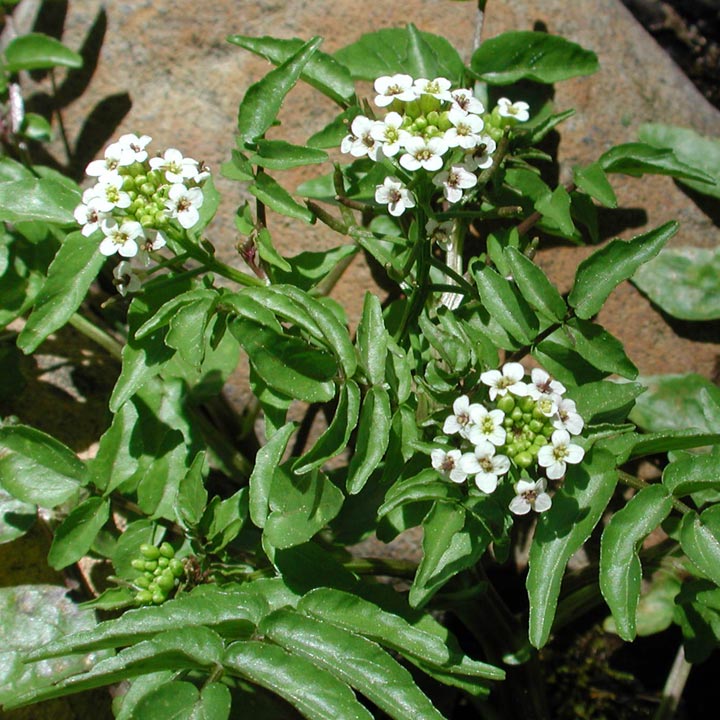Nasturtium
|
Family: Brassicaceae |
Perennials; (aquatic, rhizomatous, rooting at proximal nodes); not scapose; often glabrous, sometimes pubescent. Stems prostrate or decumbent, or erect in emergent plants, unbranched. Leaves cauline; not rosulate; petiolate; petiole base sometimes auriculate, blade (pinnately compound in emerged plants, or simple in deeply submerged plants, lateral leaflets petiolulate or sessile, 1-6(-12) pairs), margins entire, repand, or, rarely, dentate. Racemes (corymbose, several-flowered), elongated in fruit. Fruiting pedicels divaricate or descending, slender, (glabrous or adaxially puberulent). Flowers: sepals erect or ascending, oblong [ovate], lateral pair subsaccate or not saccate basally, (glabrous); petals usually white, rarely pink, obovate or narrowly spatulate, (longer than sepals), claw undifferentiated from blade, (attenuate to clawlike base, apex obtuse, acute, or rounded); stamens tetradynamous; filaments (white), not dilated basally; anthers oblong, (apex obtuse); nectar glands (2), lateral, annular or semiannular. Fruits siliques, sessile, usually linear, rarely narrowly oblong, smooth or slightly torulose, straight or slightly curved, terete; valves each obscurely veined, glabrous; replum rounded; septum complete; ovules 25-50 per ovary; style obsolete or distinct; stigma capitate. Seeds plump, not winged, oblong or ovoid; seed coat (minutely to coarsely reticulate), not mucilaginous when wetted; cotyledons accumbent. x = 8. |

